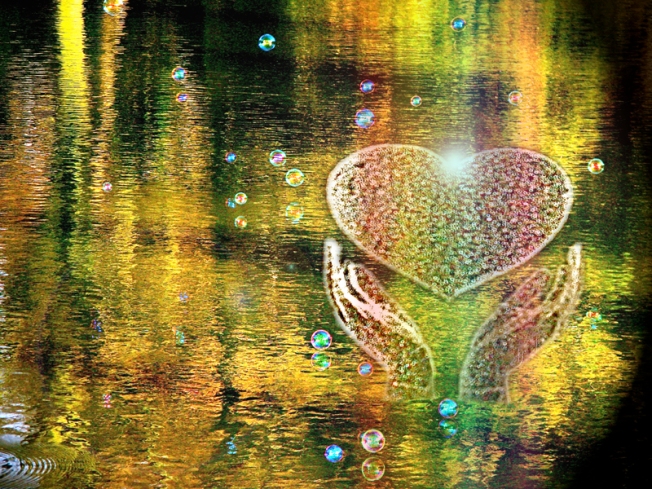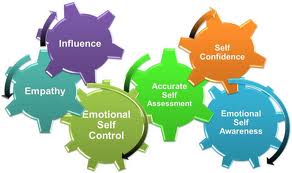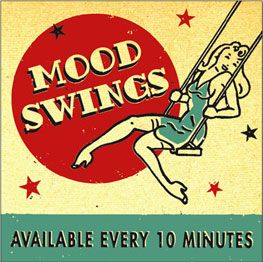Dad,
Yesterday, I decided to find you.
I tried, I tried so very hard, to not need anything from you. I tried to convince myself that I could move on without you; that I could carry on with my life somehow, without ever getting an apology. I gave it my all, I swear I did. I sweat and bled and broke, trying to be strong enough to do this without you. I told everyone around me that I was over what you had done to me, that I was over needing anything from you. I told everyone around me; I spouted it and bragged about it, hoping that it would sink into my pores and into my heart and into my soul and into that little girl that desperately needed her daddy’s love.
I tried, Dad. I tried … but I couldn’t do it.
I couldn’t do it, because the truth is that I needed you. I longed and ached for you. I didn’t need an apology, I didn’t want an apology. What I wanted, more than anything in this world, was a hug. I lived for that moment where I would find you, and you would wrap your hands around my little body and hold me tight and tell me, “Erica, I love you.” Yes, I lived for that moment … and despite all of the bad, bad things that I have experienced in my life, and despite how harshly I have been beaten down and despite how I had lost hope for everything else, I still believed in you. I believed in you, Dad.
In my head, you were no monster. You were beautiful. You weren’t a drug addict, you weren’t a rapist, you weren’t a murderer, you weren’t a woman-beater, you weren’t racist. You were pure. In my head, you were God. I pitied you; I felt so sorry for all of the pain that must be inside of you, to make you act in the ways that you did. Oh how I built you up so very, very high. If you would have just given me a chance, a moment of your time, you would have been in awe of the man I made you out to be. And you would have loved it. You were so very beautiful to me, Dad.
I didn’t blame you for the perils of my life. I didn’t blame you for the molestation. I didn’t blame you for abandoning me. I didn’t blame you for forgetting about me. I didn’t blame you for taking an innocent child’s trust and sabotaging it for the rest of her life. I didn’t blame you for calling me once every few years, offering your love, and then taking it away just as quickly as it came. I didn’t blame you for beating those women. I didn’t blame you for killing that woman. I didn’t blame you for beating my sister. I didn’t blame you for beating my brother. I didn’t blame you for disappearing. I didn’t blame you for me crying myself to sleep every single night. I didn’t blame you for me deciding that, at age 3, I was going to be forever unlovable. I didn’t blame you for choosing drugs over being a human being. I didn’t blame you for picking me up that one time, telling me how proud you were of me, and then walking away forever. I didn’t even blame you for the fact that I couldn’t accept the love of this great, great man in front of me, offering me everything I had ever needed. I didn’t blame you for anything, Dad. Not one single fucking thing.
Because I loved you. And because I needed you to love me too.
Yesterday, I found you. After more than ten years, I decided it was time. I had my fiance next to me, keeping me safe, and I finally felt ready to try. I told him that I didn’t need anything; that I was prepared for the worst … but it wasn’t true. As I sat in the car, while he looked up your address online, I appeared calm. I appeared calm. I wasn’t. Inside of me, was little me. She was jumping up and down, up and down, up and down out of excitement. She had the biggest smile on her face, Dad, you wouldn’t believe how big that smile was! She was about to see her Daddy, and he was going to see her and run to her and pick her up and hold her close and tell her how much he had loved her all along.
We drove to your apartment, and the butterflies flew inside of me. My fiance hugged me tightly, knowing already how this would turn out. You see, he was not in denial and he did not paint a pretty picture. He knew you, without knowing you .. but still, he tried, for me. He instructed me to write a note, just in case you did not want to see me. What would I say to you? Surely, you wouldn’t turn me away! So on the back of a receipt, I quickly scribbled,
“Dad,
I just wanted to let you know that I love you and I just wanted to hear it back someday.
❤ Erica”
I didn’t think the note would be needed, but I gave it to him anyway.
And then he was gone; walking away to knock on your door.
I sat. And I sat. And I sat. I waited and waited and waited. I even put on my shoes, because I was so sure that you were going to want to see me. I fixed my hair, and I fixed my makeup, and I sat.
Yesterday, Dad, I found you.
And yesterday, Dad, you turned me away.
I did not cry. I did not cry because I believed that my fiance must have found the wrong man. I did not cry because surely, surely, you would not have reacted in that way. I did not cry. And I did not blame you. There must have been a reason, a reason why you would turn me away. A reason. We startled you, we should have called, you were scared. Anything, everything; I did not blame you.
But right now, as I type this Dad, I am going to blame you. I blame you, I BLAME YOU, for closing that door. I BLAME YOU for knowing that you are dying, and not giving me any chance for clarity. It was your choice, it was your decision. And you closed that door. You. You. You.
I blame you for breaking my young, fragile heart.
I blame you for that.
I still have not cried, Dad. I am sure that I will, but I haven’t yet. I am sure that the hole you left inside of me will continue to ache, and I am sure that I will someday soon cry. But I also know that I will try my hardest to never again cry for you. I want to finally be able to cry for myself and for the pain you caused me, not for you.
It may not have been you at that door yesterday, but it doesn’t matter. You closed the door on me a very long time ago, and it is a daily battle for me to believe that it was not my fault. That little girl was not lacking anything, that little girl was good enough. She deserved your love. I deserved your love. And whenever I think of you, from this day forward, I will remind myself of that.
The saddest part, maybe of all, is that you probably have & will never be loved by anyone, as much as you were loved by me.
Sincerely,
Erica







 New work by University of Toronto Scarborough researchers gives the best description yet of the neural circuits that underlie a severe mental illness called Borderline Personality Disorder (BPD), and could lead to better treatments and diagnosis.
New work by University of Toronto Scarborough researchers gives the best description yet of the neural circuits that underlie a severe mental illness called Borderline Personality Disorder (BPD), and could lead to better treatments and diagnosis.





 -thär
-thär s
s s)
s) z)
z)